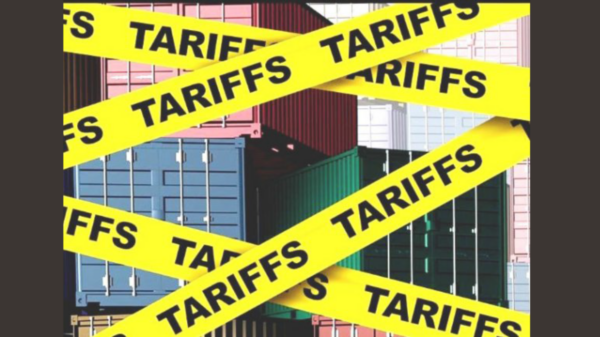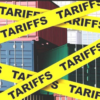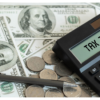Texas has repealed the tax on tampons, but what is the next step to diminishing period poverty?

By Sruja Peruka
Trendsetter Team
For those who menstruate, generations have been spent facing barriers that make it difficult or inconvenient to purchase menstrual products for their cycle. This is also known as period poverty, a term used to describe the lack of access to menstrual products, education, hygiene faculties, and more. An example of this is the tampon tax, also known as the “Pink Tax,” which is the increase of prices on products like tampons, pads, and menstrual cups.
30 out of 50 states in the U.S. still have a tampon tax. Still, in recent news, Texas Governor Greg Abbott repealed the “tampon tax” (Will go into effect on September 1, 2023), a tax responsible for making menstrual products such as tampons and pads essential for health reasons more expensive and unattainable for some.
For those with a low income or who live in low-income households, this has been a struggle to purchase products, leading to substituting products for unsafe alternatives, such as diapers or old rags, which could lead to long-term damage to one’s body like fatal toxic shock syndrome (TSS) a bacterial infection.
Prithika Sadagopan is a member of Girl Up, a women empowerment non-profit organization with a chapter in Frisco, TX. She and her sister Priyanka Sadagopan worked locally with Girl Up to eliminate period poverty.
“A bill to eradicate the tax on menstrual products has been introduced in the past four legislative sessions, meaning that it took eight years to get to this point,” Sadagopan said. “However, this past legislative session shows a lot of promise for the future with the passing of SB 379 (eliminating the tampon tax).”
But that’s just one aspect of this issue. Typically kids are taught about their period around ages 12 to as young as eight. It can be a confusing and challenging time to understand their anatomy without the right facts and education.
“Menstrual stigma is largely a result of the lack of education about menstruation (especially when it comes to people who don’t menstruate) and has made it difficult to openly discuss issues about period poverty or the tampon tax,” Sadagopan said. “All of these factors combined fuel the issue of period poverty.”
Schools can play a major role during formative years, typically in the 5th grade, to educate kids on the topic or sometimes act as emotional support by explaining the menstrual process, showing them how to use products, and dismissing misconceptions and embarrassment.
Government officials in Florida recently declared House Bill 1069, also known as the “Don’t Say, Period Bill,” which states they would no longer allow schools to teach kids about their menstrual cycle and topics under sex education.
Unsurprisingly, this sparked controversy regarding how students are in an environment where they are meant to be educated but don’t receive the proper care and knowledge that will affect a child’s livelihood. Not to mention in other states, the topic is only taught to those who menstruate and leave out those who don’t, exemplifying how stigmas and misinformation are built within households.
Menstrual cycles or periods are stigmatized as a “private” matter or a taboo in households from families where sex and periods are taboo, mostly because of cultural beliefs. This can create an idea of deep shame and can be harmful.
“There is a cost to being a minority in America for sure, and that is shown in a million different ways, yet paying up and a lack of accessibility and opportunity and then also with taxes like these for bodily functions, we cannot control secondary functions that are genuinely and quite literally out of our control so we still have to pay to exist essentially,” as 16-year-old Mihika Yamijala said. “Because we cannot exist without things like tampons like. Period products like menstrual cups, all those things, and because, at least in my specific situation, I’m about to go to college and be financially independent, and it is, you know, good timing.”
But Texas Gov. Greg Abbott’s history of unfair treatment toward the LGBTQ+ community and people of color strikes questions of judgment to Yamijala.
“I don’t think this was an act that will premeditate his bills in the future. I think this is a onetime thing where he was like, okay, maybe I can do this to get people off my case; this will not be a trend, I don’t think.”
People can now save an extra buck on period products and be proud of this change after years of demand. We should continue striving for everyone to access education and menstrual products worldwide.
Although the cost of period products in Texas won’t cost as much with the repeal, it should be seen as progress to years of demand and more as a promise for more action for everyone to access education and menstrual products worldwide.
Sruja Peruka is a Scripps Howard Foundation Emerging Journalists Intern with Texas Metro News through the University of North Texas.









You must be logged in to post a comment Login